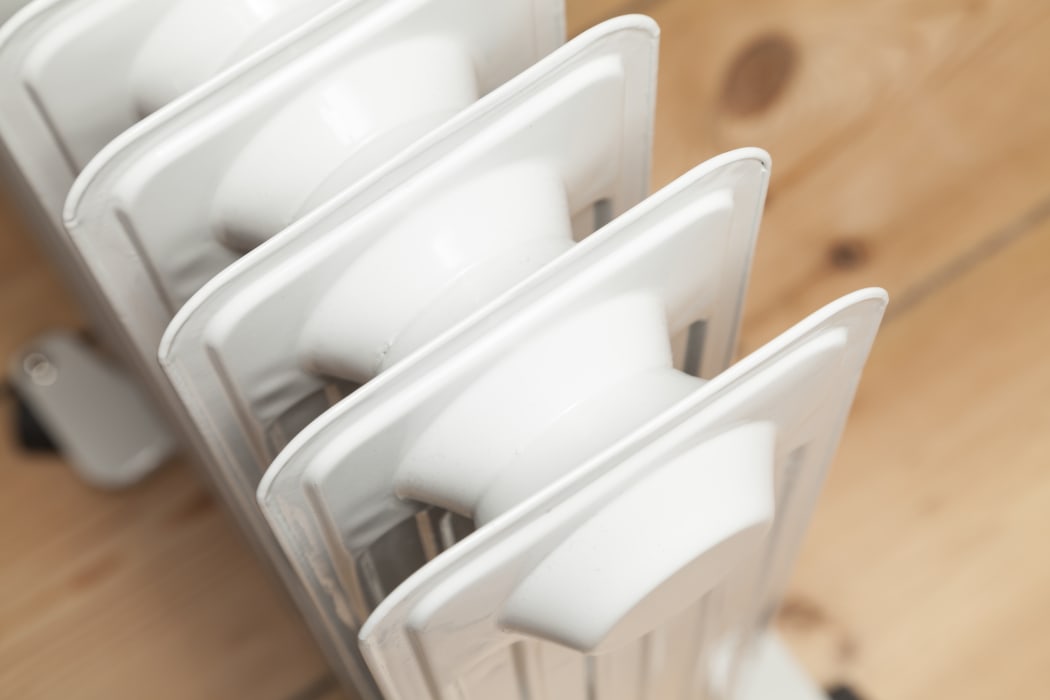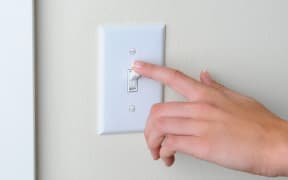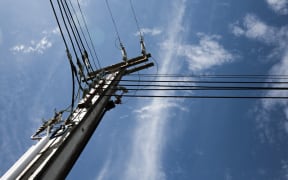Households are feeling the pinch of high power bills and renters, many in uninsulated homes, are especially hard hit, a survey suggests.

Photo: 123RF
In the survey, commissioned by home ventilation and heating company HRV, a third of people questioned found their power bill "excessive" during winter months.
For renters, that went up to half of those surveyed.
Overall, more than a third of those surveyed tried to reduce their winter power bill by using as little heating as possible.
Scott McKenzie and his partner own a two-bedroom apartment in Wellington and live there with their newborn baby. They had to keep the place warm but it was not cheap, Mr McKenzie said.
Last month's power bill was about $375 but it was something they had to absorb.
"We're just having to heat the spaces that we are in at the time. So we'll heat the living space during the day and then the bedroom overnight.
"And that sort of has to be up to about 20 degrees, which is meaning quite costly power bills."
In Auckland, Pounamu - who asked for just her first name to be used - and her family live in an uninsulated rental home in the south of the city.
Because her 11-year-old son had rheumatic fever, they had to keep the house warm so he did not catch a cold or the flu.
"It'll impact him about 100 times more. His joints will swell up, he won't be able to walk, or he'll just be in bed for at least a week - off his feet for a week. So it's really important for us to have our house heated."
Pounamu said their oil heater was on almost all the time and in winter, their monthly power bill was about $250.
It used to be about $400, and to try to save money they downgraded some of their power-sucking appliances, she said.
"Like even our vacuum... it's 1000kW and that does impact on the power as well if we're to use it quite regularly."
Families turning off heating during day - Salvation Army
The Salvation Army's territorial social services secretary, Pam Waugh, said many families that came into their centres did not heat their homes during the day, to reduce costs.
"Some of them do things like keep their oven on as a heating mechanism instead of a heater. And some of them who are on the GLOBUG [pre-pay] system might just go without for a couple of days because they can't afford to boost it up again," Ms Waugh said.
Last year, the Salvation Army had 1392 new clients or people they had not seen for a long time in each of the months of July, August, and September. This year, numbers were already up on last year.
Astronomical power bills meant less food on the table and more people in need, she said.
"Food is your expendable in your budget. So to get their rent paid and perhaps get the power paid, or pay something off it, they'll go without food. And that's not good for anyone."
The Energy Efficiency and Conservation Authority's Robert Linternan said money could be saved in an insulated home.
Sixty percent of those surveyed for HRV had insulation but that dropped to 36 percent for renters' homes.
Mr Linternan said for those with insulation there was a $7 return on every dollar spent and those were not the only benefits.
"When they do heat it the heat's retained, and so therefore they're living in much better conditions, which of course means they're not getting sick so often. So not turning up to the doctor, not turning up to pharmacies and not turning up to the front door of the hospital."
Five percent of the survey's respondents took more than 10 days sick leave each year. For renters it was higher at 7 percent.
Auckland University of Technology professor Charles Crothers worked on the survey and said it was more proof that increased social investment was needed in order for more homes to be warmer.
There were examples everywhere, he said.
"I'm sitting here in a motel in Wanaka and it's pretty bloody freezing outside and we have the heater on and there doesn't seem to be insulation or double-glazing.
"You just wonder how on earth the motel owner makes any profit with all of that electrically-driven heating going out the window," Dr Crothers said.
The survey had 1040 respondents, and is carried out each year.




